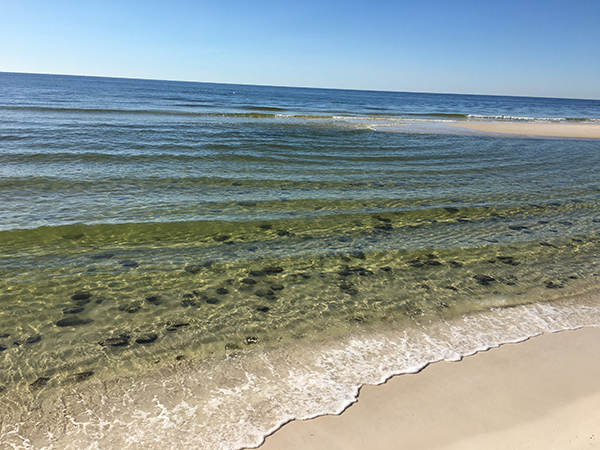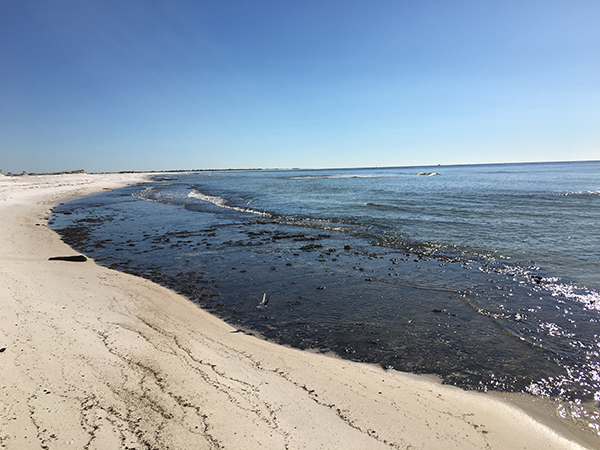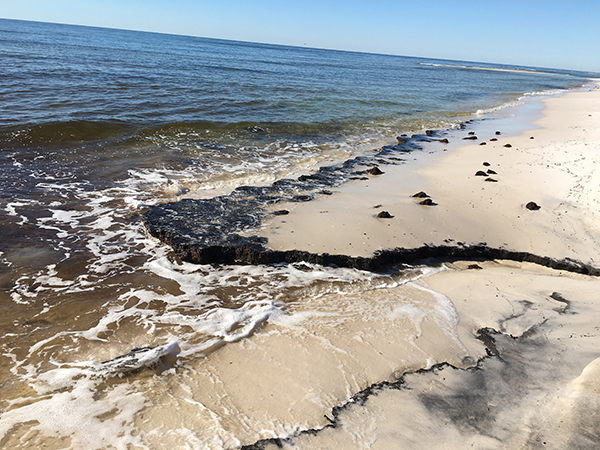Escambia County received a report yesterday of a dark mass within Gulf Islands National Seashore on Perdido Key, which a National Park Service biologist has evaluated and determined to be a naturally occurring peat mass. Though it may sometimes look similar to a tar ball or mat, peat is a natural part of the area's ecosystem and is not hazardous, nor is it pollution. Peat is made of decomposed plant matter. County, state and federal natural resource staff routinely inspect beaches throughout Escambia County, and it is not unusual to discover peat deposits.
Escambia County’s Natural Resource Manager spotted the mass off of Johnson Beach in a regular shoreline check last week, and the mass was reinvestigated today after a citizen reported the issue. Citizens are Escambia County's first line of defense, and can quickly and conveniently report issues through the Ask MyEscambia mobile and web application.
With Ask MyEscambia, residents can report environmental issues, request non-emergency services for road issues, code enforcement, stray animals, stormwater maintenance and much more. The app also provides a convenient way for citizens to request public records from Escambia County.
Ask MyEscambia can be accessed on a desktop computer at MyEscambia.com/ask, or residents can download the mobile app for free by searching "Ask MyEscambia" in the Apple App Store and Google Play Store or searching "PublicStuff" in the Windows Store or BlackBerry App World.
Oil spill-related issues can be reported not only in Ask MyEscambia, but also to the National Response Center at 1-800-424-8802. Concerns within Gulf Island National Seashore may also be directly reported at 850-934-2600.



Photos courtesy of Gulf Islands National Seashore.
